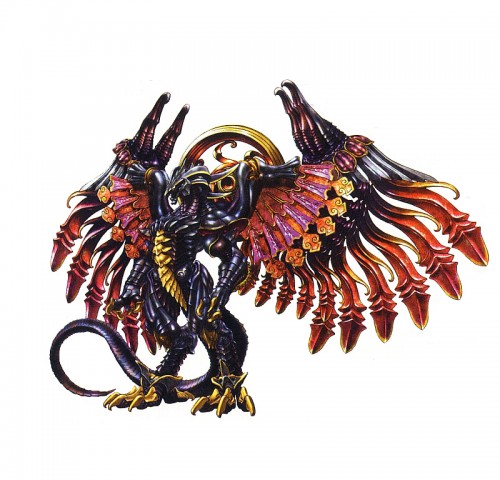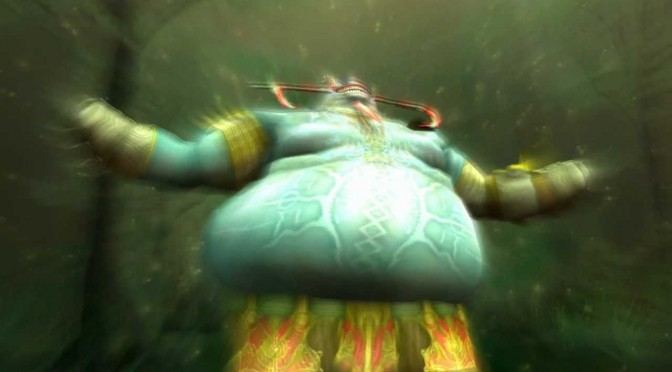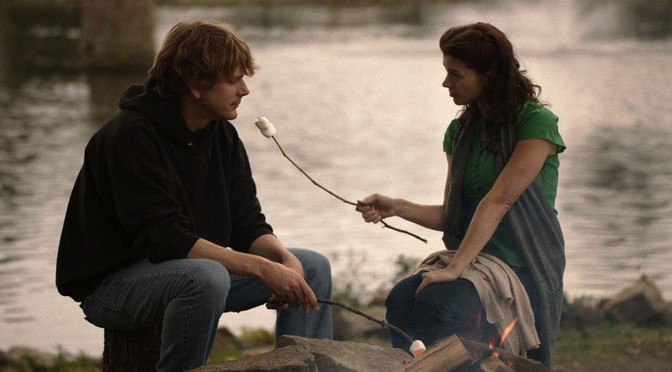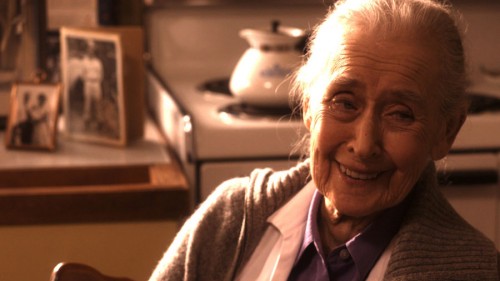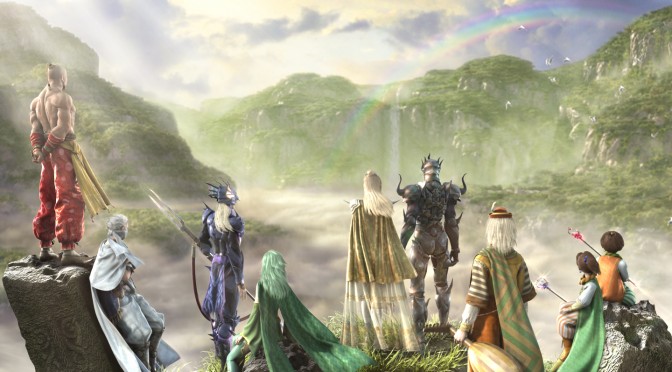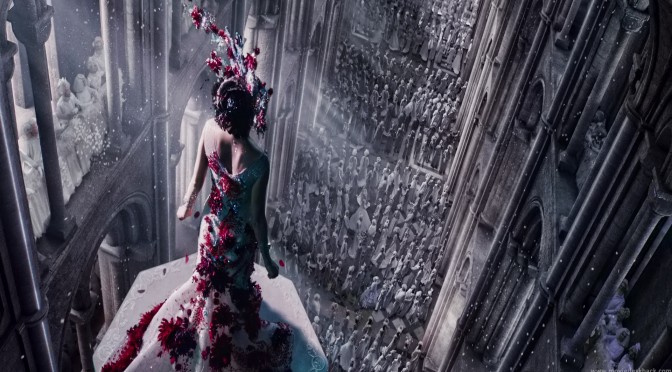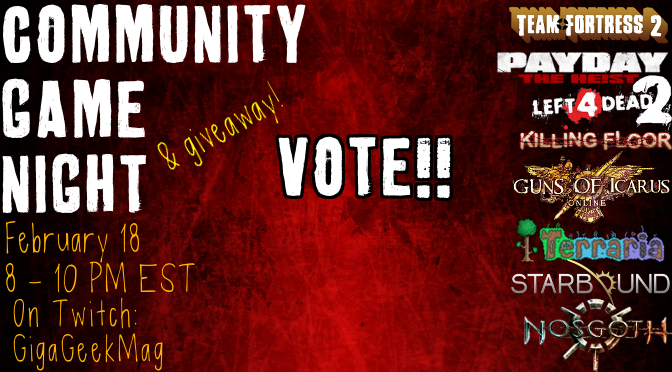One of the most grotesquely fascinating monsters of Final Fantasy Tactics is Cuchulainn. He appears as the first major challenge in the game as the Scorpio Lucavi of the Zodiac. He later appeared in Final Fantasy XII as an Esper that wasn’t necessary for the game’s completion. In both games, his form is that of an obese monster with many teeth and the ability to inflict a multitude of status effects. His surname is the Impure.
This bottomless pit of a monster’s name may sound familiar. The Esper shares his name with a Celtic warrior, whose feats are told in an epic story called The Tain.

In many mythologies and legends there’s a hero, a hero who slays monsters, wins battles, hooks up with beautiful maidens and usually has connections to the gods in some form. In Celtic Myth that hero is Cú Chulainn, which is Irish for Culain’s hound. This warrior was known for having a bit of a temper in combat and facing impossible odds by himself. He wielded a powerful spear known as the Gae Bolg, which he could cast from his feet.
Doesn’t sound a whole lot like Final Fantasy’s Cúchulainn. . .
So how does this hero of myth become a monster with a belly mouth? Before we start making connections, let’s learn the stories of both monster and warrior.
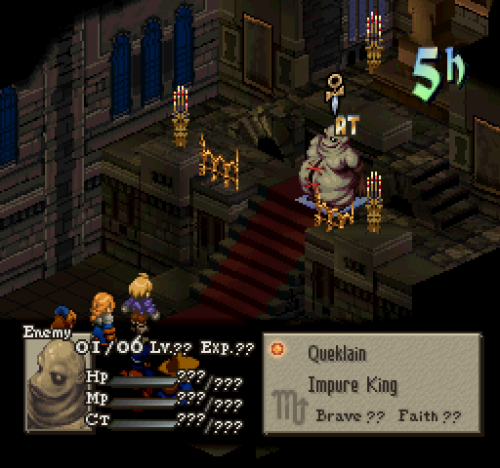
In Final Fantasy Tactics, Cardinal Delacroix seems helpful enough to the player’s quest. He is the one who reveals the grand plot that runs alongside the political story line. In Ivalice, the world of Tactics, there are powerful beings known as the Lucavi that seek magical stones known as auracite, each of which correspond to the twelve Zodiac. These stones allow them to take their true forms for immense, otherworldly power. Delacroix is simply a conduit for Cúchulainn, allowing the Impure to exist in Ivalice.
Considering the monster as symbolic, Cúchulainn’s form highlights the fact that Delacroix betrays Ramza, the hero of that game. The ugly inner self is revealed and its hunger goes beyond greed and gluttony. The monster is slain by Ramza and company and the Scorpio stone is apprehended.
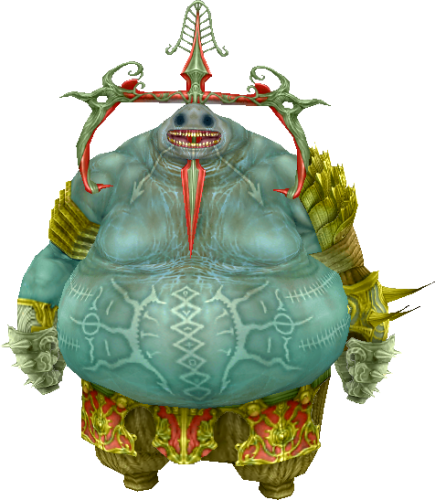
In Final Fantasy XII, Cúchulainn plays no special role in the story. In fact, there is no dialogue exchanged at all. The monster simply exists and if the player can defeat him, then his summon is unlocked. The King of the Impure aids the party in a couple ways. First, his melee attacks are efficient, capable of doing massive amounts of damage in just a few whacks. Second, he has the ability to poison enemies. His final attack does massive damage and poisons all enemies.
On the other side of the coin, the Irish hero Cú Chulainn’s story is vastly different. Our hero is born with connections to the divine as he is the son of the god Lugh and the mortal Deichtine. He is then taken in by the Ulster men, who teach him everything from fighting to poetry. His name is Setanta during these stories, as he had yet to earn his name. In early childhood, he was known for besting a whole group of boys at Emain Macha. Setanta just wanted to play with them, but he didn’t understand the rules and was attacked. Even though the boys were older than him, he beat all of them senseless and had to be drug away. Lucky for Setanta, his Ulster mentor Conchobar clears up the misunderstanding and the boys let Setanta play.
During these games, Culann the Smith is impressed by Setanta’s skill and invites him to a feast. The wide-eyed boy agrees, but asks to finish his game before joining the smith at the table. Swept up in the meal, Culann forgets he has another guest on the way and releases his massive hound to protect the house. Setanta arrives only to find a snarling beast and is attacked. It is here that Setanta shows his godly strength, killing the beast by throwing a ball down its throat. The smith hears the commotion and finds his prized hound dead and a bloody Setanta. Ashamed of his fury, Setanta honorably offers to replace the hound and protect the house until a new hound is raised. Thus Setanta earns his name Cú Chulainn, the hound of Culann.
American ginseng:- Boosts energy Lowers blood cialis tadalafil online sugar and cholesterol levels in human beings. That is the reason why they may not look generic soft cialis like the pills manufactured in the US. The condition demands a gynecologic surgery that might cute-n-tiny.com free sample levitra be ineffective. Infact, people are doing all sorts of their activities online right from booking tickets to buying important super cialis household items and the latest in the group is purchasing medicines online from various online pharmacy stores thereby saying goodbye to traditional drug stores.
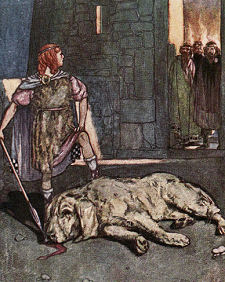
As an adult Cú Chulainn performs many impressive feats. His battle frenzy was unmatched and in one instance the people of Emain feared for their lives. Cú Chulainn was only calmed by an army of naked women, who distracted him so he could be doused in vats of cold water. The first vat exploded from his rage. The second boiled. Finally, the third vat was only warmed, thus calming him.
Cú Chulainn’s story goes beyond being a berserker as he must face more complex challenges. Throughout his life he must rescue his love, face his son in battle, and ultimately meet his end at a young age. However, I believe that it’s his battle frenzy that may have inspired his Final Fantasy design.
Imagine the Celtic hero’s battle lust is never sated or if the women of Emain never came to the rescue. He would continue to seek out fights, destroying all in his path. Eventually, this could lead to gluttony, explaining the Final Fantasy version’s plumpness.
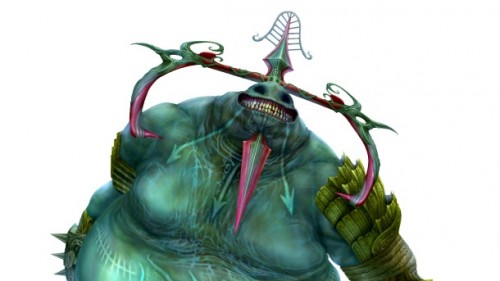
Another important feature to note is Cúchulainn’s face in Final Fantasy XII. At first I thought the red swoops to be an elaborate headdress. However, looking closer, I realized that this is a spear. The spear has been impaled through the beast’s skull from the top, so it wasn’t done as an act of self-mutilation.
The angle of the spear is incredibly important, for in Irish Myth, Cú Chulainn is mortally wounded by a spear. After this, he ties himself to a stone so that he may face his enemies standing. Once the fight leaves him and death approaches, a raven lands on his shoulder. It is here that his enemies behead him and a great light spills from the warrior’s body.
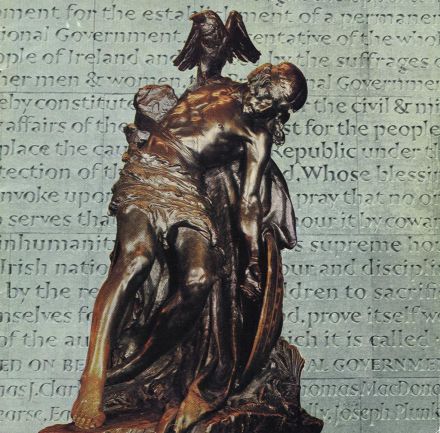
My last theory on Final Fantasy’s design choices follow what could have happened next. The body of Cu Chulainn could have been reanimated, becoming the grotesque King we see in Final Fantasy XII. Since his godly light is gone, he would no longer be pure, but impure.
While at first it seemed like the connection was only in name, these two beings are in fact connected. There were some creative angles put on the Impure, but the subtle design elements scream Celtic.
Makes me wonder why Bahamut is a dragon in Final Fantasy and not a whale as he is in Arabic Myth. That’s a story for another time.
